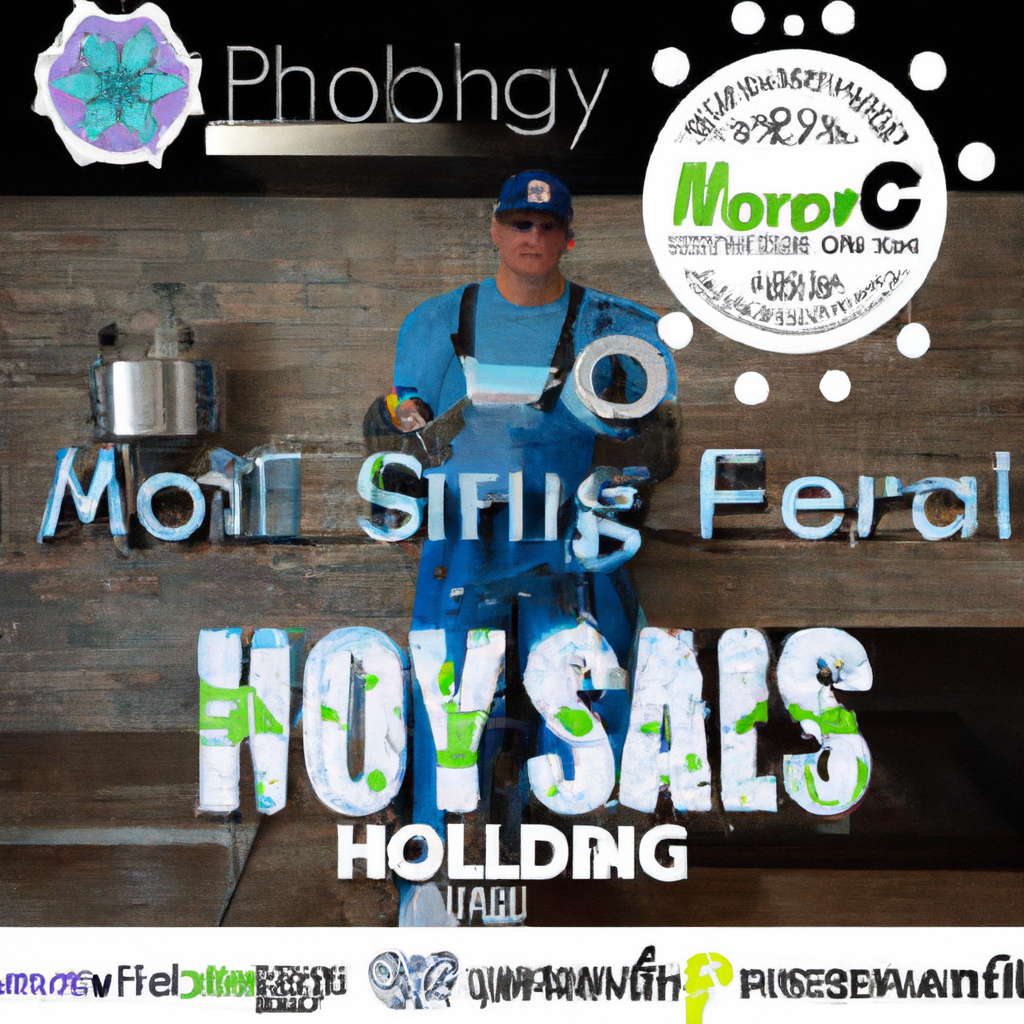Imagine stepping into your home after a long day, only to be greeted by an unpleasant musty smell. Your first instinct might be to ignore it, but what you may not realize is that this odor could be a sign of a much bigger problem – mold. Mold can be a silent intruder, affecting not only the air quality but also your health. If you find yourself facing this issue in Holly Springs, NC, worry not! The experts at Mold Remediation Holly Springs NC are here to help you tackle this problem head-on. With their specialized knowledge and state-of-the-art techniques, they will ensure that your home is restored to a clean and safe environment in no time. Say goodbye to mold woes and hello to a healthier home.
What is Mold Remediation?
Understanding the Basics
Mold remediation is the process of identifying, containing, and removing mold growth from a particular area, such as a home or commercial building. Mold can pose serious health risks and cause structural damage if left untreated. It is crucial to address mold infestations promptly and effectively to ensure the safety and well-being of the occupants.
Importance of Professional Mold Remediation Services
While some minor mold problems can be handled with DIY approaches, it is often recommended to hire professional mold remediation services for more significant infestations. Professionals have the necessary expertise, equipment, and knowledge to address mold issues efficiently and effectively. They can also ensure that the mold is fully removed and the affected area is properly treated, minimizing the chances of recurring mold growth.
Causes of Mold Infestation
Common Factors Contributing to Mold Growth
Mold requires specific conditions to grow and thrive. Some common factors that contribute to mold growth include:
-
Moisture: Mold needs moisture to grow, and any area with excessive moisture or water intrusion can become a breeding ground for mold.
-
Poor Ventilation: Inadequate ventilation can lead to high humidity levels, creating an ideal environment for mold growth.
-
Leaks and Water Intrusion: Water leaks from pipes, roofing, or flooding can introduce moisture into an area, promoting mold growth.
-
Condensation: Areas with high condensation, such as bathrooms or basements, are prone to mold infestations.
Environmental Conditions Favoring Mold Growth
Apart from the common factors mentioned above, certain environmental conditions can favor mold growth:
-
Warm Temperatures: Mold tends to thrive in warmer temperatures, with the optimal growth range between 77°F and 86°F (25°C and 30°C).
-
Darkness: Mold prefers dark environments and can grow hidden behind walls, under carpets, or in basements.
-
Organic Materials: Mold feeds on organic materials like wood, paper, and fabric. If these materials are moist or damp, it provides nourishment for mold growth.

Signs of Mold Infestation
Visible Indications of Mold
There are several visible signs that may indicate a mold infestation:
-
Discoloration: Mold often appears as black, green, or grayish patches on walls, ceilings, floors, or other surfaces.
-
Musty Odor: A strong, musty odor is often an indication of hidden mold growth.
-
Staining or Watermarks: Water stains or discoloration on walls or ceilings can be a sign of mold growth.
Health Symptoms Associated with Mold Exposure
Exposure to mold can cause various health symptoms, and individuals may experience different reactions. Some common health symptoms associated with mold exposure include:
-
Allergic Reactions: Mold spores can trigger allergic reactions, such as sneezing, coughing, itching, and watery eyes.
-
Respiratory Issues: Mold exposure can result in respiratory problems, including asthma attacks, difficulty breathing, and chest tightness.
-
Skin Irritation: Direct contact with mold or its spores can cause skin rashes, hives, or other forms of irritation.
-
Fungal Infections: In some cases, prolonged exposure to mold can lead to fungal infections, which may require medical treatment.
The Dangers of Mold
Health Risks
Mold can pose significant health risks, especially for individuals with pre-existing respiratory conditions, allergies, or weakened immune systems. Prolonged exposure to mold spores may exacerbate these conditions or lead to new health issues. It is crucial to address mold infestations promptly to protect the health of the occupants.
Structural Damage
Mold can cause structural damage to buildings if left untreated. It can deteriorate wood, drywall, and other organic materials, compromising the integrity of the structure. Over time, mold growth may weaken the structural components, leading to costly repairs or even the need for full-scale renovations.
Reduced Indoor Air Quality
Mold releases spores into the air, which can significantly impact indoor air quality. Breathing in these spores can lead to respiratory issues and allergic reactions. Additionally, mold can release volatile organic compounds (VOCs), which can further deteriorate indoor air quality and cause unpleasant odors.

Professional Mold Inspection
Importance of Professional Evaluation
A professional mold inspection is crucial to accurately assess the extent of mold growth, identify the type of mold present, and determine the underlying cause. Professionals have the expertise and experience to conduct a thorough evaluation, ensuring that all affected areas are properly identified and addressed.
Mold Assessment Techniques
During a mold inspection, professionals may use various techniques to assess the mold infestation, including:
-
Visual Inspection: Professionals visually inspect the property to identify visible mold growth and any signs of moisture or water damage.
-
Moisture Testing: Moisture meters and thermal imaging cameras may be used to detect hidden moisture sources that contribute to the mold growth.
-
Air Sampling: Professionals may take air samples to measure the concentration of mold spores in the indoor air. These samples are then sent to a laboratory for analysis.
Hiring a Certified Mold Inspector
When hiring a mold inspector, it is important to ensure they are certified and have relevant experience. Look for certifications such as the Certified Mold Inspector (CMI) or the Indoor Environmentalist (CIE) designation. Certified professionals have undergone extensive training and possess the necessary knowledge to accurately assess and address mold issues.
Mold Remediation Process
Containment and Isolation
To prevent mold spores from spreading to unaffected areas during the remediation process, containment and isolation are crucial. Professionals use physical barriers, such as plastic sheeting, to isolate the affected area and prevent cross-contamination. Negative air pressure may also be established to further minimize the spread of mold spores.
Removal and Disposal of Mold-Infested Materials
All mold-infested materials, such as drywall, carpeting, or insulation, must be carefully removed and disposed of to eliminate the source of mold growth. Professionals follow strict protocols to ensure proper containment and disposal, minimizing any potential health risks during the removal process.
HEPA Vacuuming and Filtration
After the removal of mold-infested materials, professionals use HEPA (High-Efficiency Particulate Air) vacuums to thoroughly clean the affected area. HEPA filters are capable of trapping microscopic mold spores, ensuring a thorough cleaning and minimizing the risk of recontamination.
Treatment with Moldicides and Biocides
Once the affected area is clean and dry, professionals may apply moldicides or biocides to eliminate any remaining mold spores and prevent future growth. These chemical treatments are carefully selected and applied to effectively address the specific type of mold present.

Prevention and Moisture Control
Addressing Water Intrusion and Leaks
To prevent mold growth, it is essential to address any water intrusion or leaks promptly. Repairing plumbing leaks, fixing roof damage, and ensuring proper drainage around the property can significantly reduce the chances of moisture buildup and subsequent mold growth.
Proper Ventilation and Air Circulation
Good ventilation and air circulation play a vital role in preventing mold growth. Ensure that all areas of the property, especially bathrooms, kitchens, and basements, are adequately ventilated. Use exhaust fans, open windows when weather permits, and consider installing dehumidifiers in high-humidity areas.
Reducing Humidity Levels
Maintaining proper humidity levels is crucial in mold prevention. The ideal indoor humidity level should be between 30% and 50%. Use dehumidifiers, especially in areas prone to moisture or high humidity, and regularly monitor humidity levels to prevent conditions suitable for mold growth.
Personal Protective Equipment (PPE)
Necessary Equipment for Mold Remediation
When performing mold remediation, professionals utilize various personal protective equipment (PPE) to ensure their safety. This may include:
-
Gloves: Disposable gloves protect the hands from direct contact with mold and any potentially harmful chemicals used during the remediation process.
-
Respirators: N-95 or higher-rated respirators protect against inhaling mold spores or other harmful particles in the air.
-
Protective Clothing: Full-body suits or coveralls, along with shoe coverings, protect against mold exposure on the skin and prevent the transfer of mold spores to unaffected areas.
Safety Measures for Mold Remediation Professionals
Professionals follow strict safety protocols during mold remediation to minimize any health risks. These measures may include:
-
Negative Air Pressure: Creating negative air pressure within the containment area helps prevent mold spores from escaping and spreading to other parts of the building.
-
Proper Disposal: Ensuring that all mold-infested materials are properly sealed and disposed of according to local regulations reduces the risk of cross-contamination.
-
Regular Cleaning: Professionals clean their equipment and PPE thoroughly after completing the mold remediation process to prevent any potential mold spores from being transported to other locations.

Professional vs. DIY Mold Remediation
Benefits of Hiring Professionals
While DIY mold remediation may be suitable for minor mold problems, hiring professionals offers several benefits:
-
Expertise and Experience: Professionals have in-depth knowledge and experience in identifying, assessing, and mitigating mold infestations effectively.
-
Proper Equipment: Professionals have access to specialized equipment and technologies that may not be readily available for DIY enthusiasts.
-
Safety: Professionals follow strict safety protocols and have the necessary protective equipment to ensure their safety during the remediation process.
-
Thoroughness: Professionals can provide a thorough and comprehensive remediation, ensuring that all affected areas are properly addressed and treated.
Limitations and Risks of DIY Approaches
DIY mold remediation can have limitations and potential risks:
-
Inadequate Assessment: Without professional training, it can be challenging to accurately assess the extent of the mold infestation and identify underlying causes.
-
Incomplete Removal: Improper removal techniques may leave behind hidden mold growth, resulting in recurring issues.
-
Exposure Risks: Inadequate protective measures during the DIY process can expose individuals to mold spores and potentially harmful chemicals.
-
Lack of Expertise: DIY approaches may not effectively treat specific mold species, leading to ineffective remediation and potential health risks.
Choosing the Right Mold Remediation Company
Certifications and Experience
When choosing a mold remediation company, consider their certifications and experience. Look for certifications such as the Institute of Inspection, Cleaning and Restoration Certification (IICRC) or the National Association of Mold Remediators and Inspectors (NAMRI). Additionally, inquire about their experience in handling similar mold remediation projects.
Reviews and Recommendations
Reading reviews and seeking recommendations from trusted sources can provide insights into the reputation and reliability of a mold remediation company. Look for testimonials from previous clients and check for any complaints or negative feedback.
Cost Estimates and Contracts
Obtain cost estimates from multiple mold remediation companies and compare the services offered. Ensure that the estimates are detailed and include all necessary remediation steps. Request a written contract that clearly outlines the scope of work, timeline, and any warranties or guarantees provided.
In conclusion, mold remediation is a critical process in addressing mold infestations to protect both the health of occupants and the integrity of the structure. Professional mold remediation services offer the expertise, equipment, and knowledge required to effectively handle mold problems. By understanding the causes, signs, and dangers of mold, as well as the importance of prevention and proper evaluation, individuals can make informed decisions when it comes to mold remediation. Hiring a certified mold inspector and choosing the right company ensure that the remediation process is thorough, safe, and effective, providing peace of mind and a healthy living environment.
